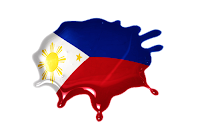 |
|
|
 Thailand, already a land of mass internet surveillance, is about to become even less secure. The government’s latest plans include an amendment to the Computer Crimes Act
that would give the Ministry of Information and Communication
Technology (MICT) the ability to access, block and delete encrypted
website content. Specifically, the amendment allows for workarounds for
the Secure Sockets Layer (SSL) protocol, a commonly used encryption
method. Furthermore, the government has made an additional proposal that would hold internet service
providers (ISPs) responsible for third party content ranging from the
ill-defined data “that is likely to cause damage to that third party or
the public” to data “that is likely to damage the country’s security or
cause a public panic.” [Image source: JBOY/Shutterstock.com]
Thailand, already a land of mass internet surveillance, is about to become even less secure. The government’s latest plans include an amendment to the Computer Crimes Act
that would give the Ministry of Information and Communication
Technology (MICT) the ability to access, block and delete encrypted
website content. Specifically, the amendment allows for workarounds for
the Secure Sockets Layer (SSL) protocol, a commonly used encryption
method. Furthermore, the government has made an additional proposal that would hold internet service
providers (ISPs) responsible for third party content ranging from the
ill-defined data “that is likely to cause damage to that third party or
the public” to data “that is likely to damage the country’s security or
cause a public panic.” [Image source: JBOY/Shutterstock.com] The Association of Southeast Asian Nations (ASEAN) Defense Ministers Meeting Plus (ADMM-Plus) has accepted a Philippine proposal for the creation of a regional cybersecurity group. Reported Philippine Secretary of the Presidential Communications Operations Office Herminio Coloma Jr., “We welcome the expression of support from our neighboring countries to deepen cooperation in strengthening cyber security due to the rising violations and abuse by lawless elements of digital technology.” The cybersecurity working group will be co-chaired by the Philippines and New Zealand and will extend to the United States, China, Australia, India, Japan, South Korea, New Zealand and Russia, in addition to the ten Southeast Asian nations of ASEAN. It is intended to protect national security as well as personal privacy. [Image source: esfera/Shutterstock.com]
The Association of Southeast Asian Nations (ASEAN) Defense Ministers Meeting Plus (ADMM-Plus) has accepted a Philippine proposal for the creation of a regional cybersecurity group. Reported Philippine Secretary of the Presidential Communications Operations Office Herminio Coloma Jr., “We welcome the expression of support from our neighboring countries to deepen cooperation in strengthening cyber security due to the rising violations and abuse by lawless elements of digital technology.” The cybersecurity working group will be co-chaired by the Philippines and New Zealand and will extend to the United States, China, Australia, India, Japan, South Korea, New Zealand and Russia, in addition to the ten Southeast Asian nations of ASEAN. It is intended to protect national security as well as personal privacy. [Image source: esfera/Shutterstock.com] Nigeria Communications Commission (NCC) Executive Vice Chairman Umar Danbatta shared the NCC’s plan to establish 30% broadband penetration by 2018 in a presentation at the 2016 Nigeria DigitalSense Forum Series. Danbatta noted the measures already taken in
achieving this goal—Nigeria’s mobile broadband subscription tripled
between 2012 and 2015—as well as next steps. Already, Nigeria has
licensed infrastructure companies, auctioned 2.6GHz spectrum,
established fiber connectivity of internet exchange points and
determined lease capacity pricing. Issues yet to resolve are lengthy:
“poor quality of service caused primarily by network capacity
constraints; the lack of physical and transmission infrastructure;
scarce spectrum resources; unreliable power supply, disparity in
telecommunications facilities between urban and rural areas; shortage of
long term investment capital; skill shortages; security challenges;
theft; transmission cable cuts, among others.” [Image source: esfera/Shutterstock.com]
Nigeria Communications Commission (NCC) Executive Vice Chairman Umar Danbatta shared the NCC’s plan to establish 30% broadband penetration by 2018 in a presentation at the 2016 Nigeria DigitalSense Forum Series. Danbatta noted the measures already taken in
achieving this goal—Nigeria’s mobile broadband subscription tripled
between 2012 and 2015—as well as next steps. Already, Nigeria has
licensed infrastructure companies, auctioned 2.6GHz spectrum,
established fiber connectivity of internet exchange points and
determined lease capacity pricing. Issues yet to resolve are lengthy:
“poor quality of service caused primarily by network capacity
constraints; the lack of physical and transmission infrastructure;
scarce spectrum resources; unreliable power supply, disparity in
telecommunications facilities between urban and rural areas; shortage of
long term investment capital; skill shortages; security challenges;
theft; transmission cable cuts, among others.” [Image source: esfera/Shutterstock.com] Saudi Arabian hackers have been linked to everything from
breaches of Mark Zuckerberg’s social media accounts to a cyber war with Iran. Hacking group OurMine accessed the Facebook founder’s Twitter and
Pinterest accounts, which it then publicized in a tweet claiming to be
“testing the security” of Zuckerberg. A recent leak of over 100 million
LinkedIn passwords is thought to have shared the password Zuckerberg
used for his other accounts. Also from Saudi Arabia, hacker Da3s defaced
Iran’s Statistical Centre and Registration Office website. In turn,
hacking group Iran Security Team fought back with attacks on websites
for the Saudi General Authority for Statistics and King Abdulaziz
University and the Digital Boys Underground Team went after the Saudi
Commerce Ministry’s website…and a back and forth war ensued. [Image source: Mikhail Mishchenko/Shutterstock.com]
Saudi Arabian hackers have been linked to everything from
breaches of Mark Zuckerberg’s social media accounts to a cyber war with Iran. Hacking group OurMine accessed the Facebook founder’s Twitter and
Pinterest accounts, which it then publicized in a tweet claiming to be
“testing the security” of Zuckerberg. A recent leak of over 100 million
LinkedIn passwords is thought to have shared the password Zuckerberg
used for his other accounts. Also from Saudi Arabia, hacker Da3s defaced
Iran’s Statistical Centre and Registration Office website. In turn,
hacking group Iran Security Team fought back with attacks on websites
for the Saudi General Authority for Statistics and King Abdulaziz
University and the Digital Boys Underground Team went after the Saudi
Commerce Ministry’s website…and a back and forth war ensued. [Image source: Mikhail Mishchenko/Shutterstock.com]Want the week's emerging economy cyber alerts delivered straight to your email? Sign up for our weekly newsletter, The SumTimes, at the bottom of www.sumrando.com ("Security Tips and News").
Have valuable insight to share from your part of the world? Write for us!
SumRando Cybersecurity is a Mauritius-based VPN, Web Proxy and Secure Messenger provider. Surf secure and stay
Rando!

No comments:
Post a Comment